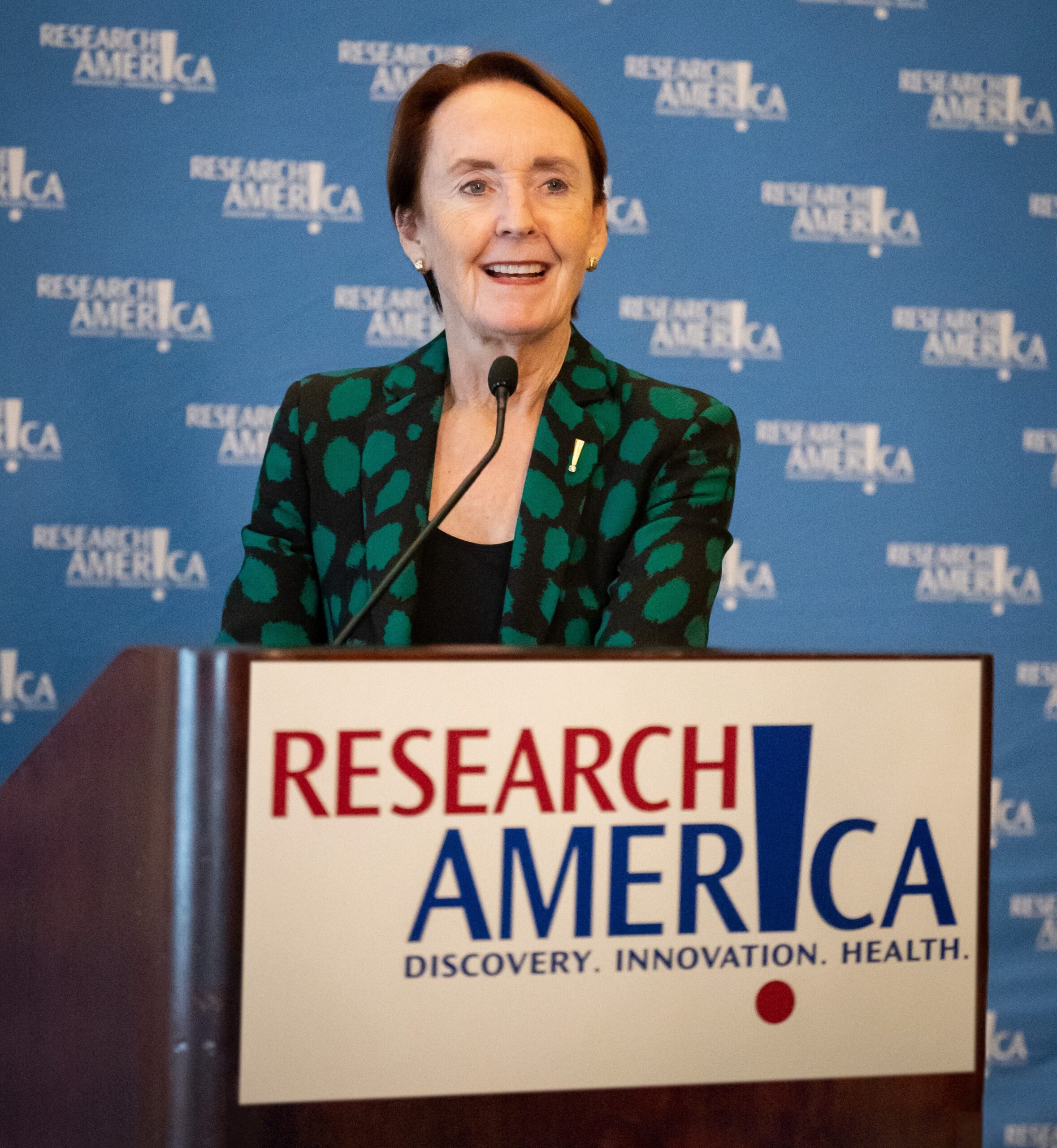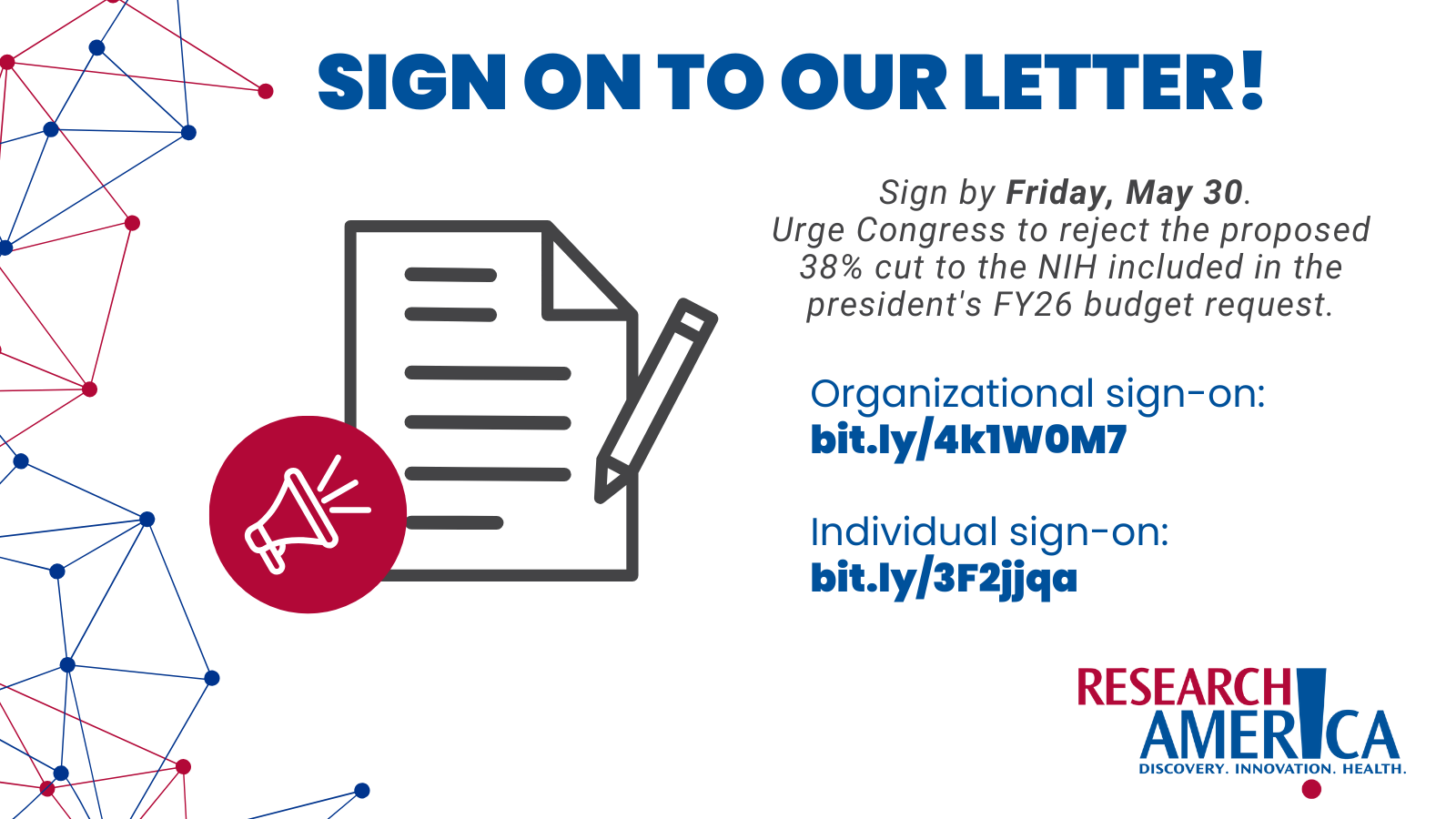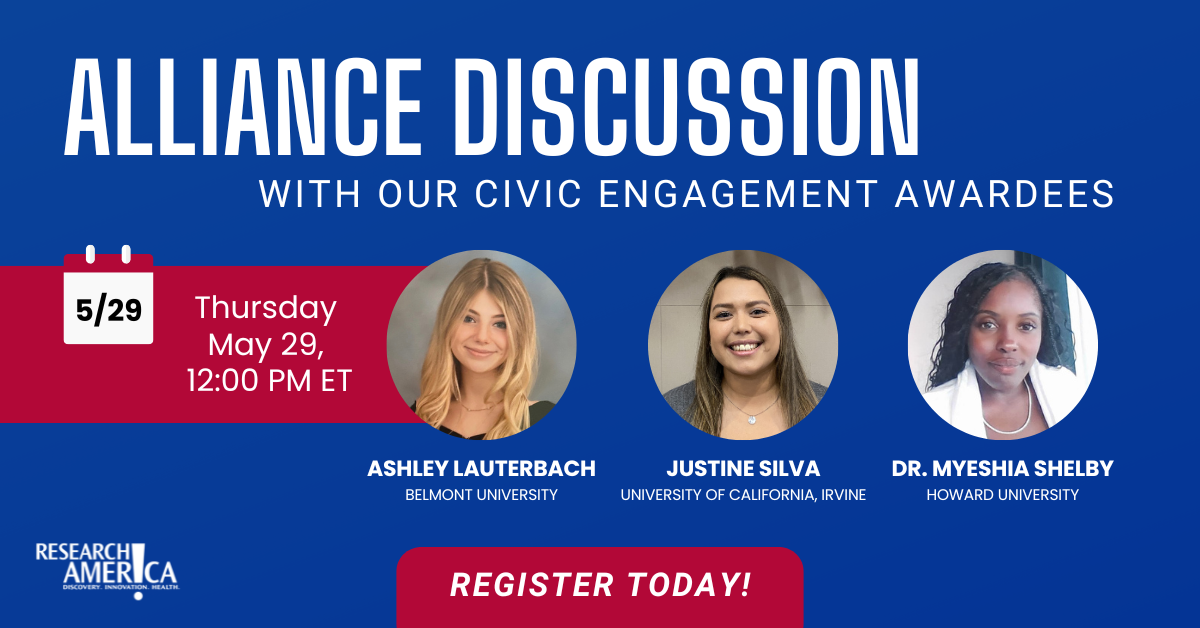Community and Advocacy

In these uncertain times for scientific, medical, and public health progress, it’s important that we come together as a community and unite in our advocacy for sustained investment. After we circulated an organizational sign-on letter last week, we heard from a number of you that you would like the letter to be open for individual signatures as well. You spoke, and we listened! Now, both individuals and organizations can sign on to our letter urging Congress to reject the proposed 38% cut to the National Institutes of Health (NIH) budget included in the president’s FY26 budget request.

The letter also calls for a deliberative, public process before any structural changes are made to the agency. If you would like to sign the letter on behalf of an organization, use this link. To sign on as an individual, use this link.
The deadline for all signatures is Friday, May 30.
On the Hill: Today, Dr. Marty Makary, Commissioner of the Food and Drug Administration, testified before the Senate Appropriations Subcommittee on Agriculture, Rural Development, FDA, and Related Agencies regarding the agency’s FY26 budget request. Although FDA funding was not included in the president’s “skinny” budget, Dr. Makary noted in his opening testimony that the agency is requesting an 11.5% reduction in discretionary funding, while proposing an increase in industry user fees compared to FY25. You can watch the hearing here.
Separately, the Senate “Labor-HHS” Appropriations Subcommittee has posted instructions for submitting FY26 Outside Witness Testimony. This is an opportunity for institutions and private citizens to weigh in on the importance of funding for NIH, CDC, AHRQ, BARDA, ARPA-H, and other research and public health agencies. Why not challenge yourself to submit testimony, using our congressional testimony resource? The deadline to submit is June 13.
Secretary Robert F. Kennedy Jr. returned to Capitol Hill on Tuesday for his third congressional hearing in a week to testify before the Senate Appropriations Labor-HHS Subcommittee on the Department of Health and Human Services’ FY26 budget request. During multiple hearings, Secretary Kennedy emphasized that if Congress appropriates funds, HHS will spend them. It is difficult to square this reassurance with the sharp increase in the number of NIH grants terminated this week, nearly doubling the total from just a week ago. Research!America continues to track these grant terminations and other actions that reduce or slow NIH outlays. We hope our new resource, which shows terminated grants by state and congressional districts, will be useful in your advocacy.
Reconciliation vs. Appropriations: The House passed their version of “reconciliation” legislation(find a summary here), addressing tax policy and spending on “entitlements,” such as Medicaid. While this legislation would not affect federal funding for NIH and other federal agencies and programs (so called “discretionary” spending), the Medicaid provisions and other parts of the bill would certainly impact public health. The next step in the process is for the Senate to consider their version of budget reconciliation legislation. Learn more about the budget reconciliation process here.
The NSF Advocacy Imperative: Proposed FY26 budget cuts for the National Science Foundation (NSF) threaten to undermine America’s scientific leadership, economic competitiveness, and security. Even worse, The New York Times (subscription required) reports that the administration has terminated more than 1,600 existing research grants totaling $1.5 billion. Undermining the NSF’s capacity to support foundational research and cultivate scientific talent will cede our competitive edge to global rivals. If the proposed cuts are passed by Congress, we will no longer be in competition with China; we will have lost.
Last week marked the 75th anniversary of the NSF, established by Congress to advance national health, prosperity, and welfare. Six former NSF directors and seven former chairs of the National Science Board recently sent a letter to members of the House and Senate Appropriations Subcommittees that allocate funding for NSF (and other critical science agencies) to express their concern over recent actions and urge Congress to make bold investments in the NSF.
The Science and Technology Action Committee (STAC) has also sent a letter to the Appropriations Committee leaders in the House and Senate opposing the NSF cuts.

Hear from Civic Engagement Awardees: Curious about the role early career researchers play in shaping civic science? Join us on Thursday, May 29, at noon ET for an Alliance Discussion featuring awardees from Research!America’s Civic Engagement Microgrant Program and Public Engagement Content Award initiative. Learn from three awardees as they discuss their projects helping scientists develop the skills they need for more effective public engagement. Register here. Alliance members and non-members are welcome!
MAHA Report: Today, the President’s Make America Healthy Again (MAHA) Commission released its inaugural report, Make Our Children Healthy Again: Assessment, focused on several of the themes Secretary Kennedy has addressed during his congressional testimony, including ultra-processed foods, vaccines, environmental chemical exposure, and medication use. More to come on this report in future letters.
Join Research!America: Amplify your policy and advocacy efforts! Join our multi-sector alliance. The membership process is straightforward, the benefits are compelling, and your participation intensifies our community’s influence on and off Capitol Hill. Email Senior Director of Development and Membership Kristen Furlong for more information.




